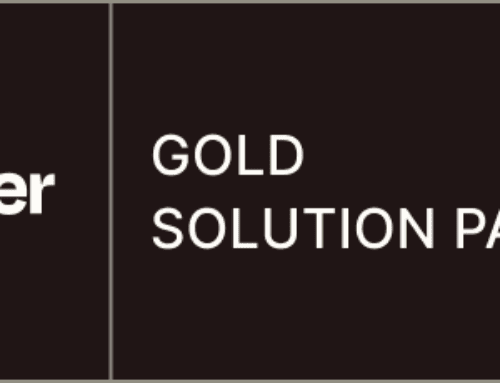How to Effectively Integrate MyCalendarAlerts with Google Calendar
Introduction to MyCalendarAlerts and Google Calendar Integration
In today’s fast-paced digital age, keeping track of appointments and important dates can feel like a juggling act. This is where integrating MyCalendarAlerts with Google Calendar can be a game-changer. Imagine having your alerts and Google Calendar in sync, allowing you to manage your schedule seamlessly. With this integration, you streamline your planning process, cut down on missed appointments, and stay organized effortlessly.
This guide will walk you through the step-by-step process of linking MyCalendarAlerts to Google Calendar. Whether you’re a business professional, student, or someone trying to stay on top of life’s commitments, this integration is an invaluable tool. Let’s dive into how you can make your calendar work smarter for you!
Understanding the Benefits of Integration
Why should you consider integrating MyCalendarAlerts with Google Calendar? The benefits are plentiful. First off, it reduces the need for multiple apps and notifications, giving you more clarity and fewer distractions. When everything is synced, you gain a single view of your schedule, minimizing the chance of overlapping events or forgotten appointments.
Additionally, this integration enhances productivity by allowing automatic updates. Any changes made in one system are immediately reflected in the other, ensuring that your calendar is always up-to-date. Think of it as having a personal assistant who keeps all your plans sorted without any manual effort from your side.
Getting Started: What You Need
To set up this integration, you’ll need a couple of key things. First, ensure that you have active accounts in both MyCalendarAlerts and Google Calendar. If you’re not already using them, signing up is straightforward and free. Having access to both platforms is essential because they form the backbone of your scheduling setup.
Next, you’ll need a reliable internet connection to facilitate smooth data synchronization between the two platforms. Security credentials, like API keys or login information, might also be required depending on the integration method you choose. Preparing these details beforehand ensures a smooth setup process, leaving no room for hiccups along the way.
Step-by-Step Guide to Connecting MyCalendarAlerts to Google Calendar
The integration process kicks off with accessing your MyCalendarAlerts account. Head over to the integration section and look for the Google Calendar option. Once there, you’ll typically find an ‘Add’ button or similar prompt. Clicking this connects your apps and initiates a setup wizard, guiding you through various permissions and settings.
Be sure to grant all necessary permissions that the wizard asks for. This allows both applications to communicate with each other smoothly. After authorizing connections, complete the setup by finalizing any preferences such as sync frequency and notification settings. Voila! Your calendars are now linked, ready to simplify your scheduling tasks.
Troubleshooting Common Issues
Even the best-laid plans can hit a snag. If you encounter issues during the integration, don’t panic. Start by double-checking that all permission requests were correctly granted and that there’s no network interruption. Often, minor tweaks in settings can resolve most synchronization problems.
Still facing challenges? You might want to consult online forums or the support sections of both MyCalendarAlerts and Google Calendar. Many users have likely faced similar issues, and solutions are usually just a search away. Remember, troubleshooting is part of the process, and patience is key to a smooth integration experience.
Enhancing Your Productivity with Integrated Calendars
Once your integration is up and running, you’ll start noticing the productivity boost. Automated alerts mean no more last-minute rushes to meetings or forgotten deadlines. Instead, you get timely reminders that keep you on track without the need for constant manual checking.
Furthermore, having a centralized calendar helps in better time management. You can visualize your day, week, or even month ahead, allowing for more strategic planning. With every event harmonized across both platforms, your workflow becomes more streamlined, leaving you with more time to focus on what truly matters.
Exploring Additional Features and Customizations
Don’t stop at basic integration. Delve into additional features offered by both MyCalendarAlerts and Google Calendar. For instance, color-code your events or set custom reminders based on priority levels. Customize notifications so you receive them via email, app alerts, or even SMS, tailoring them to your lifestyle.
Explore add-ons and plugins that further enhance functionality. You might find tools that allow you to integrate other productivity apps, creating a robust ecosystem for your personal or professional use. The possibilities are vast, limited only by your imagination and willingness to experiment.
Conclusion
Integrating MyCalendarAlerts with Google Calendar opens up a world of organizational possibilities. It’s like having a personal assistant right at your fingertips. This setup ensures your busy life is not just managed, but optimized for success. By implementing this integration, you give yourself the gift of time—time saved from endlessly checking and updating multiple calendars.
Whether you’re tech-savvy or a novice, following the steps outlined ensures a hassle-free integration experience. Take advantage of the automation and customization features to tailor your schedules perfectly. Embrace this technological harmony and watch your productivity soar.
FAQs
1. Is it safe to integrate MyCalendarAlerts with Google Calendar?
Yes, it’s generally safe provided you ensure all connections occur over a secure network and you carefully review all permissions requested during setup. Both platforms employ stringent security measures to protect user data.
2. Can I customize the type of alerts I receive?
Absolutely! You can modify the alert settings to receive notifications via different channels like email, pop-ups, or SMS. Adjust these according to your preference for an optimal reminder system.
3. What if I miss an update in MyCalendarAlerts?
Fear not! The synchronization ensures that as long as there’s internet connectivity, any changes made in MyCalendarAlerts automatically reflect in Google Calendar, and vice versa. This reduces the risk of missing an update.
4. Are there any costs associated with the integration?
Both MyCalendarAlerts and Google Calendar offer free versions for basic usage. However, if additional premium features are required, either platform might charge for those. Always check their official sites for detailed pricing.
5. Can I integrate other calendars with MyCalendarAlerts?
Yes, many calendar apps support integration with MyCalendarAlerts. Check the compatibility and follow similar steps to integrate. This can further expand your scheduling capabilities across various platforms.











